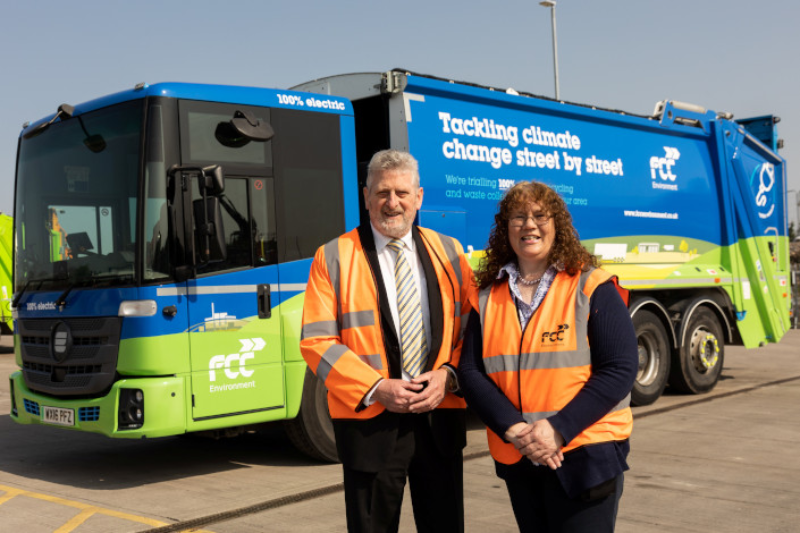New ways to power street cleaning and waste and recycling collection vehicles are being trialled in Wychavon as part of efforts to cut carbon emissions.


FCC Environment, Wychavon District Council’s waste and recycling collections contractor, is currently trialling two alternative fuels on waste and recycling collection rounds across the district.
The first test involves swapping a traditional diesel lorry for an electric refuse collection vehicle (e-RCV). The e-RCV has a battery range of of 125 miles and can operate for about nine hours on a single charge.
The e-RCV trial is part of a wider national study involving seven other councils and is understood to be the most comprehensive long-term study of its kind.
The trial will help FCC Environment and its partners understand what they will need from e-RCVs in the future, as well as other adaptions the UK may need to make such as upgrades to the electricity network and changes to how the trucks are used.
The second test involves the use of Hydrotreated Vegetable Oil (HVO) to replace diesel as a fuel for the remainder of the collection fleet.
The fuel is made from different kinds of vegetable oils and can reduce greenhouse gas emissions by as much as 90% compared to diesel. It also means there is no need to change vehicles.
Cllr Tony Rowley, executive board member for climate change, environmental policy and regulatory services on Wychavon District Council, said: ‘These exciting trials demonstrate the commitment of Wychavon and FCC Environment to cutting our carbon emissions. I hope the data from this trial will bring us a step closer to the day when we can have a fleet picking up waste and recycling across our district that is completely powered by low or zero carbon fuel sources.’
Dr Mike Burgess, head of development and lead for the e-RCV initiative at FCC Environment, said: ‘These wide-ranging, long-term trial will generate critical hands-on experience and real FCC Environment contract data to help inform future fleet purchase specifications for the next generation of alternative fuel vehicles in the UK.
‘By 2050, by law, we will have to stop using vehicles powered by fossil fuels. This presents a challenge to companies and local authorities using big vehicles for essential services like waste collection. It’s not as simple as just replacing the trucks – we need to consider how we upgrade the electricity distribution network and change the way the trucks are used. This trial hopes to examine the problems and find solutions to help local authorities decarbonise their waste collection.’